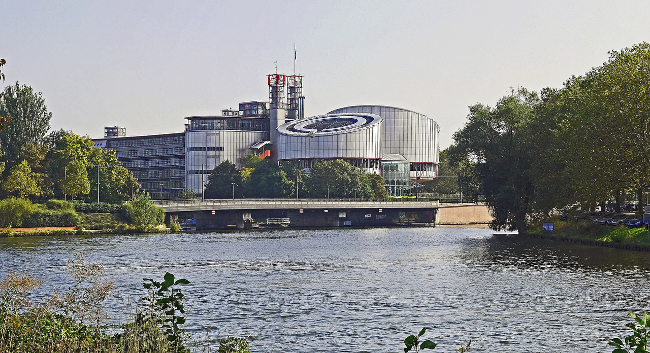ECtHR: Man forced to take paternity test did not suffer violation of right to privacy

A man who was ordered by a court to undergo a DNA test in a contested paternity case did not suffer a violation of his right to privacy, the European Court of Human Rights (ECtHR) has ruled.
In today’s Chamber judgment in the case of Mifsud v Malta, the Court held, unanimously, that there had been no violation of article 8 (right to respect for private and family life) of the European Convention on Human Rights.
The applicant, Francesco Saverio Mifsud, is a British national who was born in 1925 and lived in Dublin, Ireland. He passed away in December 2017 and the application has been pursued by his widow.
In December 2012, a woman, X, began court proceedings in Malta to have Mr Mifsud declared her biological father and for this to be put on her birth certificate.
The applicant denied paternity and X asked the court to order him to take a DNA test, as provided for by the Civil Code in such cases. Mr Mifsud objected, arguing that forcing him to take the test would breach his rights under article 8 and asking for the question to be referred to the constitutional jurisdictions.
Both the Civil Court (First Hall) in its constitutional competence and the Constitutional Court dismissed Mr Mifsud’s claim. The Constitutional Court referred in particular to X’s right to know who her father was and found that Mr Mifsud would not suffer any humiliation in having to take the test, which was by way of a mouth swab. The DNA procedure was eventually carried out.
The applicant complained that Maltese law made a genetic test mandatory in paternity proceedings and that it was imposed on him against his will, in breach of article 8 (right to respect for privacy of the home and family life).
The application was lodged with the European Court of Human Rights on 15 December 2015.
The Court focussed on whether the domestic courts had achieved the required balance between Mr Mifsud’s wish to refuse to provide the DNA sample, a procedure which was an interference with his rights to respect for his private life, and those of X to uncover the truth about an important aspect of her identity. The Court emphasised that in such cases it examined the specific effects of domestic legislation on an applicant, rather than the law itself in the abstract.
Mr Mifsud had argued that the domestic legislation failed to respect the principle of equality of arms owing to the timing of the order to provide the DNA sample – it came at the beginning of paternity proceedings before either side had presented a case for or against the need for such a test. The test determined the issue and meant in effect providing self-incriminating evidence.
The Court did not agree that Mr Mifsud had been ordered to undergo the test before being able to submit evidence. Both he and X had made submissions to the civil court, which had then delayed a decision until his objections had been settled at two levels of constitutional jurisdiction. Even after the civil court issued the order, he had been able to try to challenge the outcome of the test.
The Court rejected Mr Mifsud’s arguments about self-incrimination, even if such tests were conclusive in paternity disputes. What was important was that he had been able to participate in the proceedings, presenting arguments and examining witnesses. Such tests did not contradict the rule of law and natural justice, particularly given the legitimate aim in this case of the State fulfilling its duty to X under article 8.
Partly accepting Mr Mifsud’s argument that the test was in theory mandatory, which, as the Constitutional Court had found, could raise an issue under article 8, the Court nevertheless found that in practice that was unlikely to be the case, for example, if there was no prima facie case for it. In addition, in the case of Mr Mifsud, the issue had been determined after a thorough examination by the domestic courts, which had not shown any signs of being arbitrary or unfair.
Overall, the domestic courts had struck a fair balance when weighing up Mr Mifsud’s interests and those of X and there had been no violation of article 8.







